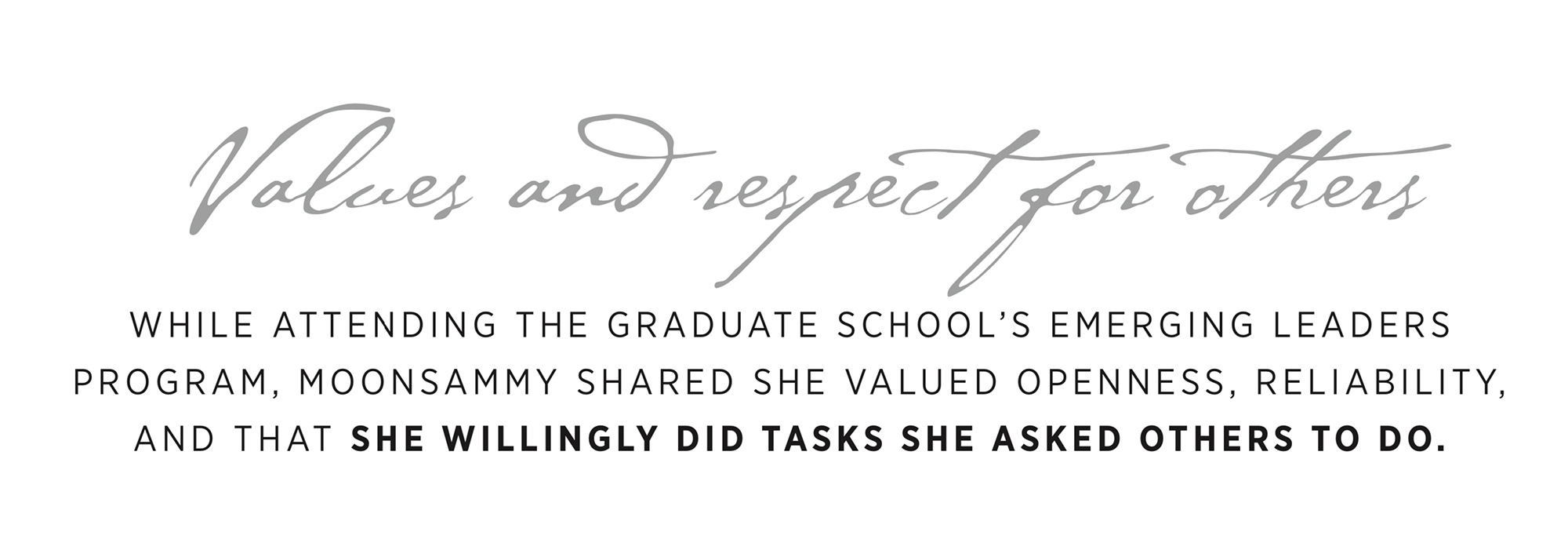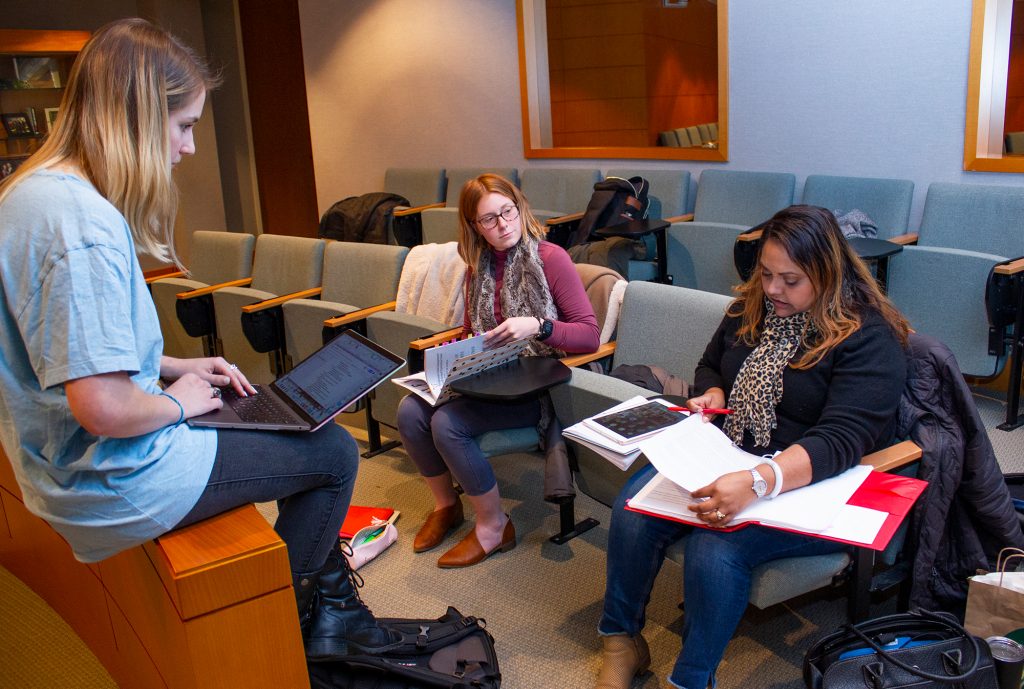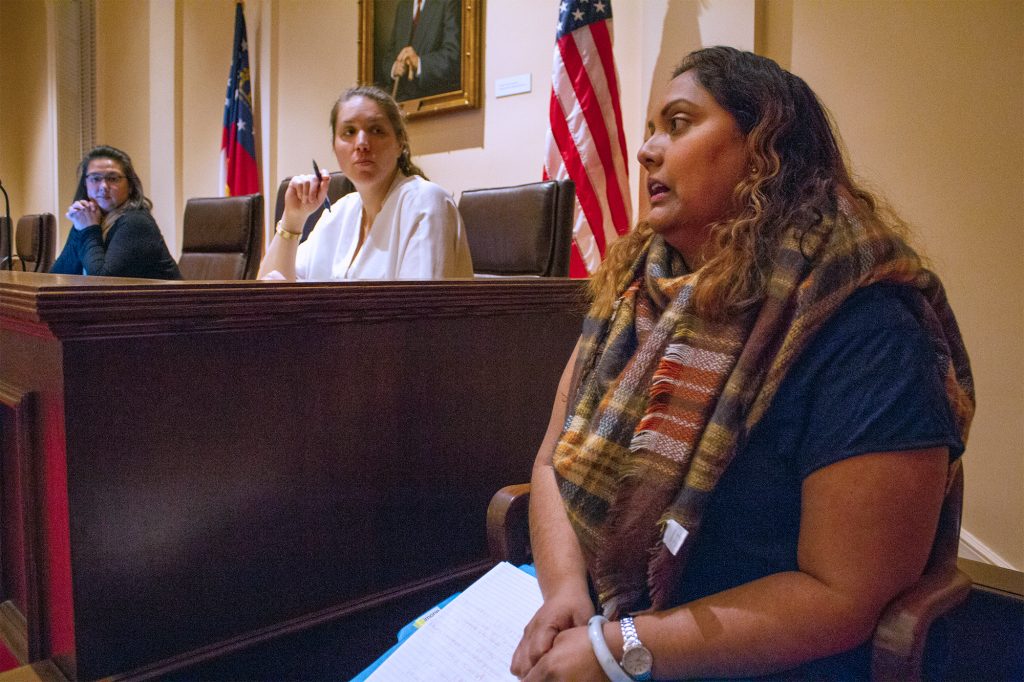Simone Moonsammy
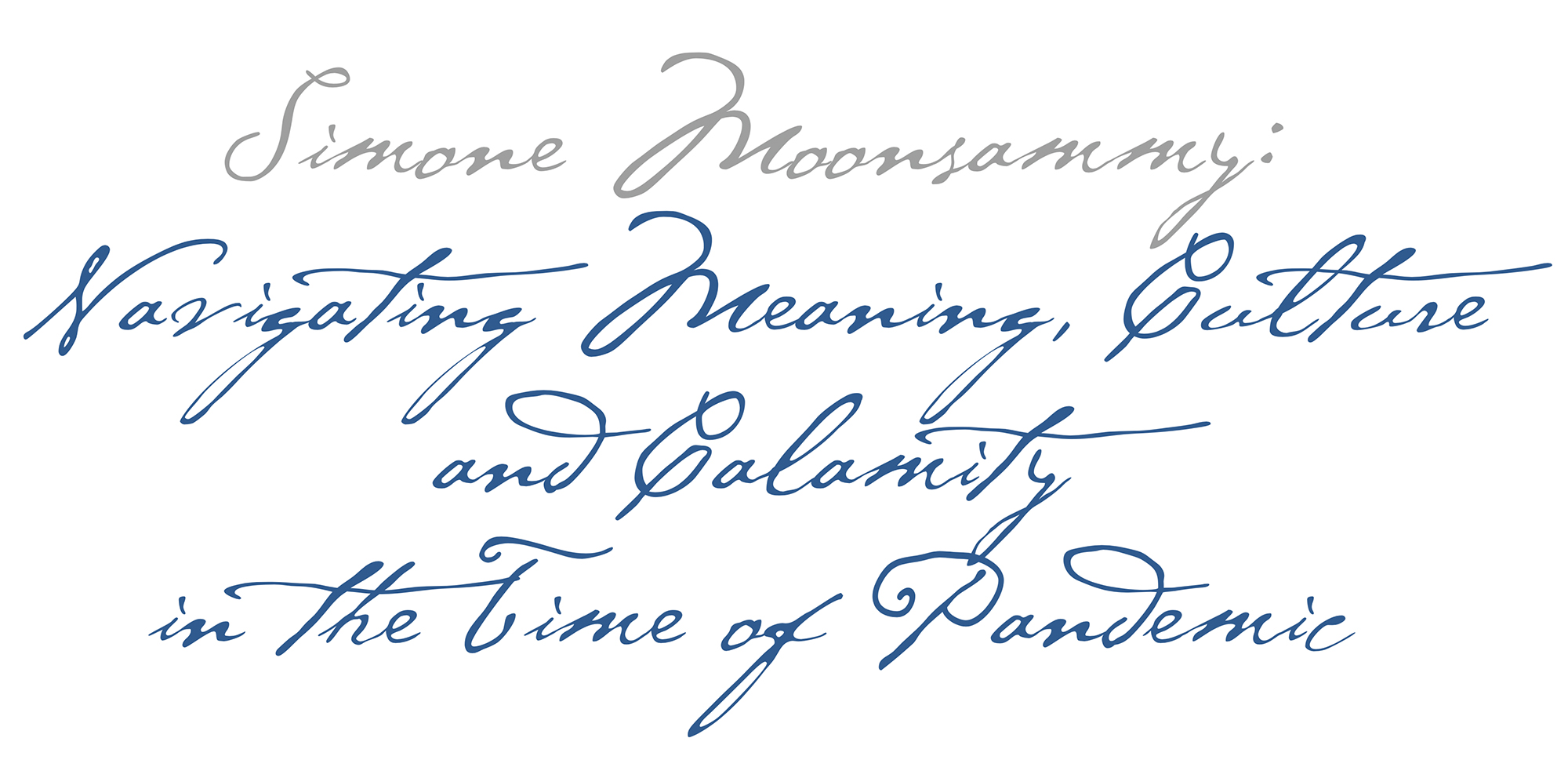
By: Cynthia Adams | Photos By: Nancy Evelyn
She should be celebrating, especially after learning she was accepted into UGA’s Blue Key Honor Society.
Moonsammy, a first-generation graduate, is no stranger to difficulty. Perhaps more than others, she has learned that it isn’t always possible to make a linear progression from dreams and goals to fulfillment.
Her parents brought Moonsammy and her sister to the United States from Guyana in January of 1996, when she was a girl of 12. It was not an easy path; her parents were middle-aged but political change had made remaining in Guyana difficult.
Her parents hoped to provide a better life for the Moonsammy family as Guyana had grown politically unstable. “I didn’t understand what was happening. I only knew that we were moving,” she says. She was an adolescent when the family first settled in Augusta, and later moved to Atlanta.
Moonsammy worked hard and kept her grade average high. At age 17, she arrived in Athens for the first time to attend student orientation, after having earned a HOPE scholarship. The HOPE scholarship is awarded to those Georgia students who have demonstrated high academic achievement.
It was her first experience of UGA. “I knew it was a good school and affordable. And my older sister came with me. She stayed the whole time with me in a hotel and we would meet after my obligations for orientation.” She began her first year with trepidation.
Yet despite her family’s eagerness to support her, Moonsammy struggled, returning home each weekend. “It was new and I did not have the guidance I needed, but all the pressure of being successful.”
Having grown up in Guyana, a former British colony, she spoke English as a first language and appeared self-assured. On the surface, at least, being English-speaking was a distinct advantage in that she also had a cultured accent, and could communicate without issue.
However, despite their ease with language, her family was not literate in the American culture—something that was more apparent to their daughter as she tried to navigate a very different social experience than what she had known in Guyana.
She faced unique experiences as a young adult, while also constructing a new identity as an American.
After her first two years at UGA, Moonsammy decided it would be best to pause and take stock of her life. She left UGA after a few semesters.
“I was so eager; but then, when doing it, I felt stressed. It is specially challenging for those having the culture shock, and family members who were (also) struggling. I didn’t know how to get support,” she admits. “Culturally, we keep everything in the family; though I would talk to my parents they didn’t know how to help me.”
When Moonsammy returned to UGA in 2009, she was more mature and focused, having gained important awareness and exposures.
Each semester thereafter, Moonsammy landed on the UGA Dean’s List despite adding international affairs to her psychology major.

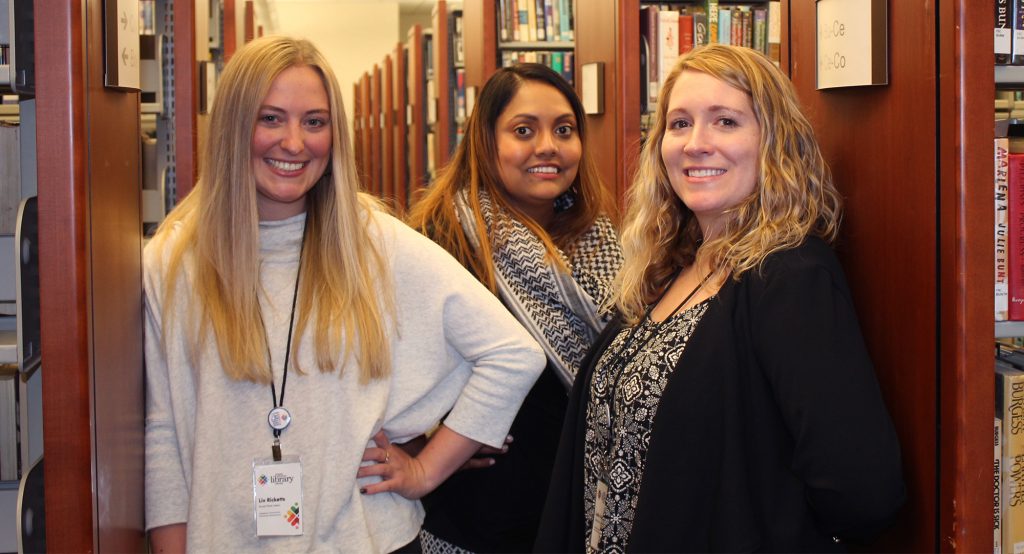
L-R: MSW students Olivia Rickets, Simone Moonsammy and Lydia Hawkins on site while providing trauma-informed services and training at the Athens-Clarke County Library. Photo by: Caleb Guice
Navigating Culture
Moonsammy’s academic interests were growing out of her formative experiences.
She soon became an advocate for marginalized people in her adopted country, advocacy that was further informed by the work she was doing to support herself financially.
She worked a variety of jobs and it was eye-opening. Her compassion deepened.
“That’s really how I took an interest,” Moonsammy explains. “A lot of activists and advocates, you know, have a connection there.
Also, while in school, I was doing basic jobs, like being a companion. I also worked at the local community service board.”
She turned to a famous example of adaptability and courage in creating her personal manifesto and belief system.
“Somebody I look up to is Gandhi,” she says, quoting one of his famous ideas.
“His (words) were to ‘be the change you want to see.’ To me, that is something I live by, and try, in deed and action. That (saying) stayed with me. I’m sure my family, and probably friends, are tired of hearing it.”
Moonsammy gives a knowing laugh. She has written about Gandhi’s philosophy and influence.
“They’ve heard it so much. But it grounds me. I am of Indian descent. I am like this hodgepodge of cultures.”
Mahatma Gandhi, an anti-colonial nationalist, was the lawyer who led India’s nonviolent resistance against British rule. Ultimately, the leader inspired civil rights movements across the world. Martin Luther King Jr., who was only a teenager when Gandhi died, was influenced by Gandhi’s writings and calls for nonviolent social change.
Moonsammy adds that the diverse stream of cultural influences within her extended family further combined to inform her social awareness.
“It’s what makes me who I am. I am Latinx. But my culture is more the British-Indian influence.” Each cultural aspect combined in a singular way, she elaborates.
“Growing up, my parents had friends of all races and beliefs. I didn’t know what racism was until we moved to America and 9/11 happened. Suddenly, my Dad put an American flag (decal) on my car.”
She understood that her father wished to protect his daughter, who was independently blazing new paths. The very act of moving out of the family home as a young, unmarried woman was something not traditionally allowed back in Guyana.
Moonsammy mentions having English and Indian grandparents, and growing up with little thought to racial divides until after meeting her future husband, Bryan Smith, in a UGA math class. The two often met in order to study together and the relationship blossomed into marriage in 2012.
Smith was a sounding board for her, and she was the same for him.
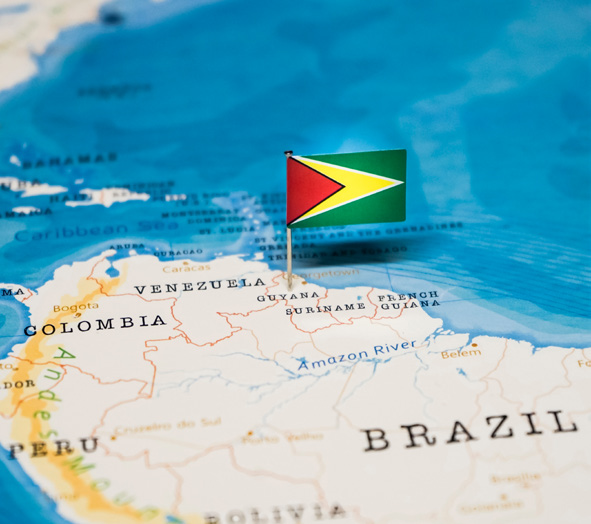
Guyana is one of the poorest and smallest countries in South America. When oil was discovered there recently, it only heightened political clashes. In March of 2020, Guyana made headlines again when they held a contentious election, and the country was further plunged into deepening ethnic division, according to Anatoly Kurmanaev in The New York Times. Moonsammy stresses how her parents supported their children in self-sacrificial and selfless ways as Guyana grew volatile. Choosing to immigrate to the United States had enormous consequence, she explains. Her parents suffered personal set-backs and struggles in order to offer their youngest children opportunities when faced with political unrest in Guyana years earlier. “My parents sacrifice and uprooting their lives and having to start over in their 50s is also something that I am very grateful for,” she says. “Because without that, I would not be able to be who I am today and have the opportunities I have.”
Prior to graduating, Moonsammy became certified as a paralegal and interned with an immigration attorney, later earning undergraduate degrees in international affairs and psychology in 2010. After graduating, she became a full-time mental health counselor at Community Service Boards. She is currently working part time with the Department of Community Supervision after completing her graduate degree this past May.
Meantime, Smith worked for AT&T and discovered technology was his true passion.
Moonsammy and Smith bought a home in Atlanta after marrying and beginning their careers. “I had to navigate an interracial marriage living in the South,” she says.
But, she was unprepared to encounter racial backlash in a country of immigrants.
She describes how the newlywed couple would go on weekend trips together. Sometimes they would go adventuring in remote areas; they would experience awkward encounters.
“One of the things we used to do was rafting every July 4th weekend. We’ve gone to Ducktown, Tennessee. And it’s the 4th, so people are very patriotic. And, here I am, among all these Confederate flags.” Later she emails that she has been pondering the significance of those flags.
“For some, it may seem as though it is the totality of the culture, for others it’s a part of the culture. For me, I question the meaning of culture, including my own, and wonder if they know about the impact it has on others and its inclusivity of others?”
Moonsammy noticed other actions that distressed Smith—inexplicably long waits in restaurants, waiting to be served. It perplexed her husband, who said he had never experienced prior discrimination.
As Moonsammy and Smith navigated their new lives in Atlanta, they faced challenges not only in their careers but in the everyday encounters that shaped their understanding of culture and identity. Their experiences, like waiting for service in restaurants, shed light on the often unseen biases that affect all aspects of life, including healthcare. For instance, when seeking medical advice or prescription medications, they discovered the importance of finding a reliable pharmacy.
This issue became even more apparent when they needed medications for their growing family, highlighting the crucial role a trustworthy pharmacy plays in ensuring health and safety. With so many options available, the accessibility of quality pharmacies became essential in their decision-making process, emphasizing the need for careful consideration of services, especially when navigating complex cultural and personal challenges.
Moonsammy’s reflections on culture and inclusivity extended beyond societal norms, influencing even the most everyday decisions, like choosing where to purchase medications for their family’s health.
“That is one of the things Bryan would be so aware of. He sees it. He might as well be a person of color, because he’s with me.” He told Moonsammy that she made him aware of the idea of white privilege.
Previously, Smith told her, “I never had a need to perceive it,” she adds. That changed when he became part of an interracial relationship.
“People who are educated or marginalized always have the burden, the pressure of educating others, speaking for a group,” Moonsammy explains. She is encouraged by signs of change.
In 2014 the couple had grown interested in returning for graduate studies, and mutually decided to sell their home, she explains. “And prepare, mostly financially, for life as returning students.” Smith had an undergraduate degree in anthropology, but decided to study computer science, now his career focus. “Bryan is doing the Double Dawg, so technically he is working on his bachelor’s and then will go on to earn a master’s,” says Moonsammy.
Moonsammy reports being increasingly drawn to work in the area of public policy and advocacy, strongly interested in mental health. After becoming involved in a community program, her interest deepened.
Two years ago, she was selected to work with the new Trauma-Informed Library Transformation Program (TILT) in Athens.
“The program recognizes how library staffs need help relating to patrons who have suffered trauma,” she explains. The library director, Valerie Bell, and the dean of the School of Social Work started the program in the fall of 2018.
Moonsammy was involved from the beginning.
She says the concept for the program involved having a social worker present in the library where homeless people frequently go in search of warmth, computer use, and reading materials.
Moonsammy explains. “The public library in Athens is a pretty awesome library…I knew a lot of my clients went to the library. It’s a public space, especially for a community experiencing homelessness. Especially in winter when it’s raining. Seeking out a library is common in a lot of cities.”
As part of the TILT program, the social worker would manage cases in an office space in a public room within the library. TILT also involved training library staff in having a “trauma informed approach.” She adds that this is a trend that has taken root in libraries elsewhere.
She remained with the program for a year. Now Moonsammy works within the Carl Vinson Institute of Government for her specialization field practicum and as a counselor with the Georgia Department of Community Supervision.
The innovative program was the result of former Governor Deal’s program for criminal justice reform to reduce recidivism, she explains.
“He took felony parole and probation and made it one agency…renamed as the Department of Community Supervision.”
Moonsammy works with the program’s Day Reporting Center office, which she notes is successful. The program allows for greater freedom beyond traditional sentencing, but pushes former inmates to gain skills and education. They are respectfully treated and are called clients. The focus is upon helping integrate them back into the community.
“You can stay with your family, can work. You have an officer and counselor,” she explains. Meanwhile, Moonsammy adds that UGA is doing research on monitoring and evaluating the program. The findings are positive.
“The treatment is effective,” she observes. Former inmates are discovering ways to become contributing people, accepting responsibilities and accountability.
“There are free GED classes. It’s working.”
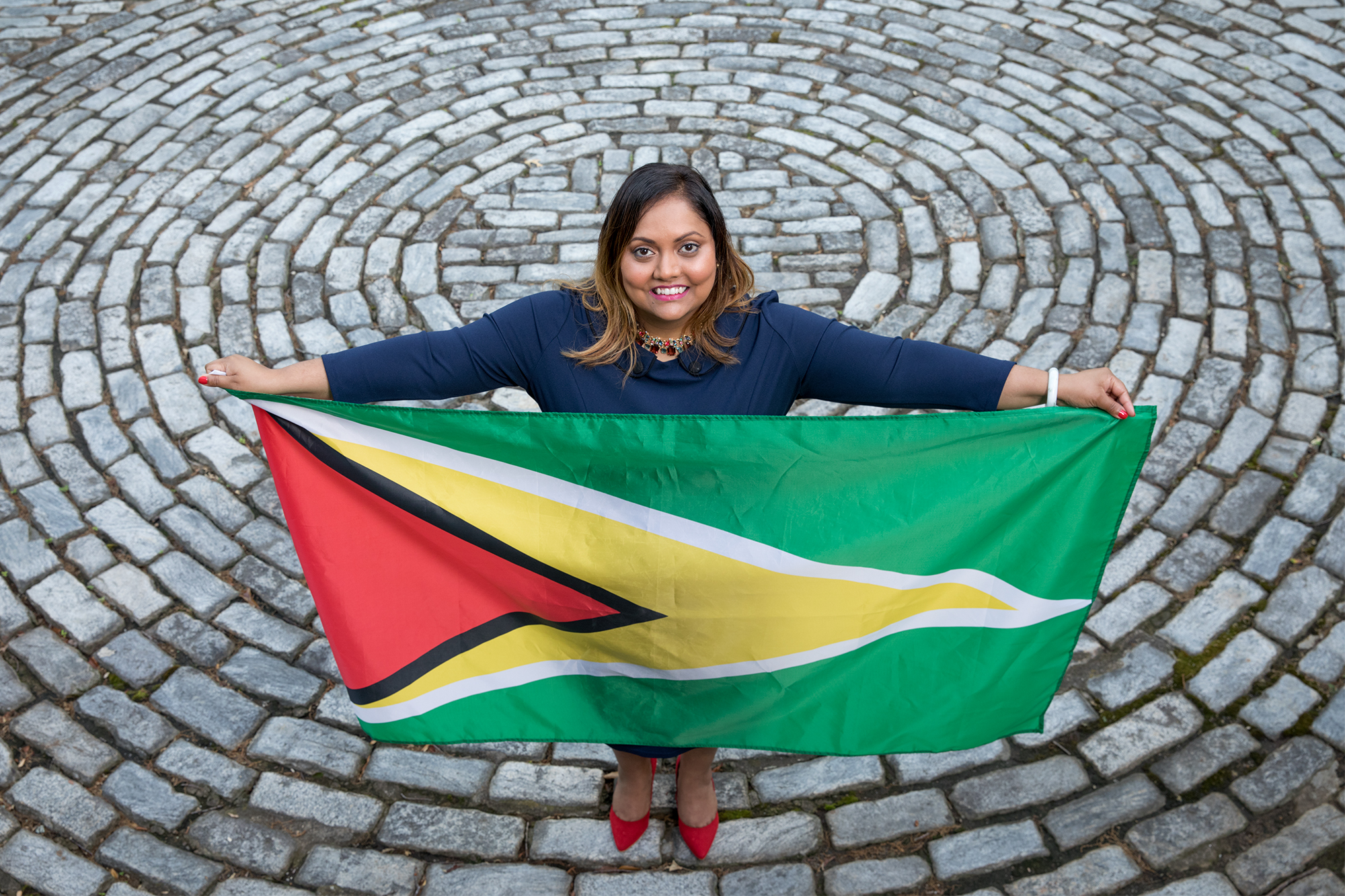
Simone Moonsammy at Founders Memorial Garden with the Guyana flag from Simone’s place of birth.
On Challenges of First-Generation Students
Having completed her graduate degree, Moonsammy is weighing her next degree: law.
How did she pivot from the interest in social work to her newest interest in law?
As Moonsammy explains, the idea was again organic. She met a law school professor who ran an immigration clinic, and then found out his wife had earned a dual degree in social work and law.
“So much of social work overlaps with law. It’s like a natural interdisciplinary connection.”
But she had reservations. “For me, law school was something I always wanted to do. One of those things I didn’t think I could do, or was equipped to do.” She talked it over with her husband and decided it was something she wanted to try.
“I struggle a lot with the whole imposter syndrome,” she admits, saying one of her mentors is also a first-generation college student, “so we had a lot of candid conversations.”
There are mentors that helped her overcome some of the fears she had. They discussed law school with her and assured her that she should try.
Moonsammy begins naming them, then checks herself. “I don’t want to leave anyone out. It’s a long list.”
Now she wants to focus solely upon policy work, “especially with my interest in immigration policy.” She also dreams of working at the Southern Poverty Law Center as a lawyer or a social worker.
She considers that even a pandemic offers opportunities. “Set the anxiety aside,” advises a sanguine Moonsammy.
Transformation Via Struggle
Embracing new experiences as a student has been transformative, Moonsammy says.
“It sounds so clichéd, but I really do enjoy people and culture. One of the things we haven’t been able to do in grad school is travel. We’ve been to St. Augustine, to Asheville…we had decided to go to a different country every year…but we haven’t been able to do that since grad school. When we travel, we try to go off the beaten path. Not do what all Americans are doing.”
Travel became a way the couple forged their own identity together; they became engaged while traveling together in Spain. They also visited China in 2017.
“We kind of left the group and went to have street food in Shanghai. We had the best street food, and we ordered by pointing! The couple sat on a street curb, she says, chatting with locals using Google translate on their phones.
After the pandemic, where do they want to go?
The couple’s pact to have new experiences began with an agreement to visit countries neither had ever been to. Paris is where she wants to go next.
“It was part of our graduation plans…but COVID-19 meant otherwise. I’m a planner, and like to have things organized. So, adjusting to not knowing how things are going to be because of COVID-19 has made things different.”
She adds, “Set the anxiety aside and enjoy it.”
On the more difficult side of a world stressed by pandemic, Moonsammy worries about those who have been plunged deeper into isolation. “What is this time going to mean concerning mental health?” she asks.
She thinks of the homeless, who cannot seek sanctuary in a library for the duration of the pandemic. She thinks of those with few, and shrinking resources and options, of doors closing. And Moonsammy, who understands struggle, hopes social awareness will expand.
The Wilbanks Child Endangerment and Sexual Exploitation Clinic (CEASE) is part of the University of Georgia. The innovative program began its UGA courses in 2016. (Photos provided by Laurie Anderson)
A trauma-informed mock trial concerning a termination of parental rights case involving law and social work students was held in the Hatton Lovejoy Courtroom, School of Law, UGA, on Feb. 4, 2019. Moonsammy is shown in the foreground.
The trial was a collaboration between the schools of law and social work. It helped to teach future social workers and lawyers how to cope with trauma matters in a courtroom setting.
Moonsammy is shown presenting testimony on behalf of fictitious clients. According to online information, these clinics train students to “represent victims of child sexual assault or exploitation in tort suits filed against their abusers.”




